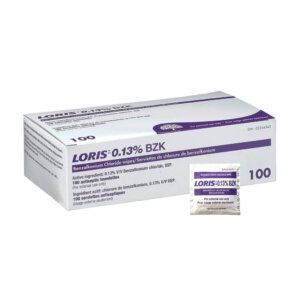
In recent years, the world has witnessed a breakthrough in medical science — the advent of mRNA vaccines. These revolutionary vaccines, predominantly used in the fight against COVID-19, are potentially a cornerstone for combating numerous other diseases. mRNA vaccines do not contain infectious elements, enabling a safer and more effective vaccination process.
This groundbreaking technology harnesses the power of our bodies‘ cellular machinery to spur immunity. Though we’ve only scratched the surface, mRNA vaccines may hold the key to unprecedented healthcare and disease management strides.
The Science Behind mRNA Vaccines
The principle of vaccines is a masterstroke of innovation. These vaccines deploy a snippet of viral genetic code, namely the messenger RNA or mRNA, into our bodies. Our cells receive this as a blueprint to construct a non-harmful viral protein. In essence, this is a simulation of an actual infection.
The immune system then jumps into action, recognizing and combating the foreign protein. This engagement readies it to fight off any future encounters with the actual virus. Importantly, this intricate process leaves our DNA untouched, preserving our genetic integrity. Also, after accomplishing its task, our bodies naturally eliminate the mRNA.
Pioneering mRNA Technology and Vaccination
The revolutionary mRNA vaccine technology has created ripples in the scientific community, largely due to its transformative implications. One marvel at the potential applications extending far beyond the urgent need for pandemic control.
Embracing the rapid scientific strides, many companies have become instrumental in vaccine development or offering services such as gene synthesis, peptide synthesis, protein expression, and antibody production that assist in mRNA vaccine development.
Notably, the key advantage of this technology lies in its speed. Traditional vaccines often involve a long, complex production process. In contrast, mRNA vaccines streamline the process significantly. This accelerates the response to newly emerging diseases, offering a valuable tool for managing public health crises like the COVID-19 pandemic.
mRNA Vaccines and COVID-19
The COVID-19 pandemic was the arena where vaccines proved their mettle. It was here that the world truly noticed the potency of this technology. Pfizer-BioNTech and Moderna, the leading torchbearers of vaccines, emerged as game-changers in this global health crisis.
Their vaccines, boasting up to 95% efficacy, served as powerful shields against the formidable virus. This impressive performance was pivotal in turning the tide in our fight against COVID-19.
Moreover, the speed with which these vaccines were developed and deployed revealed the unparalleled potential of mRNA technology. MRNA vaccines were a beacon of hope in a world desperate for solutions, demonstrating a new era in rapid, effective vaccine development and disease management.
Targeting Infectious Diseases
While COVID-19 brought mRNA vaccines into the spotlight, the technology holds promising applications beyond this single disease. Scientists are venturing into the use of mRNA vaccines to tackle a plethora of other infectious diseases.
Current research efforts are exploring mRNA vaccines against Zika, influenza, and rabies, among others. These experimental vaccines are in various stages of development, and their progress is closely monitored.
A successful mRNA vaccine against any of these diseases would signify a monumental step in disease control. It could redefine our approach to handling infectious diseases, setting a new standard in swift and effective immunization.
mRNA Vaccines and Cancer Treatment
The scope of mRNA vaccines extends into another daunting frontier — cancer treatment. The potential to wield mRNA technology against cancer is a thrilling prospect. Unlike conventional treatments that can harm healthy cells, mRNA vaccines propose a more targeted approach. They aim to guide our immune system, like a precision tool, to detect and destroy cancer cells specifically.
This process would spare healthy cells, reducing collateral damage typically associated with cancer treatments. While this application is still in the research phases, the promise it holds is monumental. If successful, mRNA-based therapy could significantly alter the landscape of cancer treatment.
Allergies and mRNA Vaccines
Allergies are another domain where vaccines could make a significant impact. An allergic reaction is essentially an exaggerated immune response to typically harmless substances. It is this overreaction that mRNA vaccines aspire to tame. By educating the immune system to respond appropriately to these substances, vaccines could potentially alter the course of allergic reactions.
They might offer a way to alleviate or even cure certain allergies. This innovative approach represents a potential shift in our understanding and management of allergies. While this potential application is still under exploration, the premise holds promising prospects, demonstrating once again the remarkable versatility of mRNA vaccines.
mRNA Vaccines and Autoimmune Diseases
Autoimmune diseases, where the body’s immune system wages war against its own cells, represent a complex medical challenge. mRNA technology is emerging as a beacon of hope in this domain. It proposes a novel strategy to contain the rebellious immune response characteristic of these diseases. The principle involves instructing the immune system to halt or reduce its mistaken attacks on the body’s own cells.
Such an approach could mark a revolutionary shift in managing autoimmune diseases like rheumatoid arthritis and multiple sclerosis. Although still in the investigative phase, this potential use of mRNA vaccines opens a new horizon in treating these often debilitating conditions, underlining the vast scope of mRNA technology.
Manufacturing and Distribution Advantages
In the world of vaccine production, speed, and efficiency matter. Here, vaccines hold distinct advantages over traditional counterparts. Their production process is faster and more standardized, bypassing the need to grow the virus in a lab. This feature expedites the entire production cycle, allowing for a more rapid response to disease outbreaks.
Moreover, standardized production contributes to better consistency, which is crucial for vaccine efficacy and safety. Consequently, these benefits position mRNA vaccines as a robust tool in our health arsenal, especially during emergencies. This flexibility and agility in manufacturing and distribution underscore another reason mRNA technology is a game-changer in disease prevention.
Future Outlook for mRNA Vaccines
The horizon of mRNA vaccines stretches far and wide, touching multiple facets of healthcare. Despite being relatively new, this technology is poised to leave an indelible mark on disease management. The vision for vaccines’ future includes transforming preventive measures and therapeutic interventions.
The potential for these vaccines to be applied to various health conditions is tantalizing. It holds the promise to extend beyond infectious diseases to include cancer, allergies, and autoimmune diseases.
As research efforts delve deeper into this technology, we expect to see further applications emerge. This surge in innovation gives us reason to anticipate a robust expansion of mRNA vaccine applications in the years ahead. The future of mRNA vaccines appears promising and rife with possibilities.
Conclusion
As we explore the vast potential of mRNA vaccines, it’s clear this technology could revolutionize healthcare. The diverse applications stretch from infectious diseases to cancer and autoimmune disorders. Quick manufacturing and distribution enhance their usefulness, especially in urgent situations. While we stand on the precipice of a new era in medicine, continued research and innovation will shape the exciting future of vaccines.








